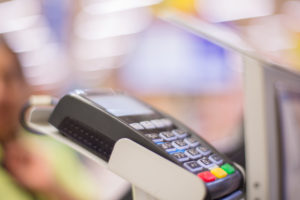Amazon has rallied the anti-counterfeit troops! After a whole lot of grumbling — and A-to-Z reporting — the online retailer is finally coordinating a campaign against counterfeiters. That’s right, e-commerce impresarios: Bezo’s behemoth has vowed to make “fighting phonies a major goal for 2017.” (And the crowd cheers, “HUZZAH!”)
The worldwide counterfeit crisis has hulked into a $500 billion epidemic; needless to say, Amazon’s efforts are welcome. But will it work? Can Amazon efficaciously fight product fraud? Moreover, what’s the attack plan? Is beefing up fraud departments — and vowing “zero tolerance for the sale of counterfeit items” — really going to work? Or is Amazon just tossing around PR platitudes to placate?
Why Is The Amazon Counterfeit Problem Growing?
Before we analyze Amazon’s counterfeit situation, let’s look at why the platform is morphing into a knockoff bonanza.
- Easy Signup: Online retail is fertile entrepreneurial soil, in part because the low barrier to entry. You don’t need a round of VC funding to start a private label e-commerce company. All it takes is hard work, a minimal cash outlay, and, in most cases, an Amazon account. (I say “in most cases” because Amazon is the largest online retailer in the country, but other platforms do exist. Amazon just happens to be the most popular.) Consequently, easy signup also attracts ne’er-do-wells. Plus, since fraudsters tend to account hop, catching them can become a frustrating game of whack-a-mole.
- Where The Shoppers Are: Counterfeiters don’t make money unless people actually buy what they’re hawking. In other words, they need to be where people are shopping. Right now, that’s Amazon.com, Alibaba.com, Jet.com, eBay, Etsy, (and yes, we see you Walmart.com, climbing up the third-party online retail ranks).
Analysis: Will Amazon Be Able To Effectively Tackle Its Counterfeit Problem?
Vowing to war with fraudsters is fine — encouraging, even. But will the talk give way to tangible results? Can Amazon shoo counterfeiters off its platform?
As we mentioned above, Amazon’s platform is both a blessing and a curse. Startup costs are low, which is ideal for honest entrepreneurs — but rakes are also drawn to the platform’s open borders.
Now, does that mean Amazon’s platform is prohibitive when it comes to a counterfeit crackdown? No. If the company appropriately directs resources to account monitoring, inquiry research, user education, and customer service, change is possible. And, according to reports, it appears the online retailer is doing just that. Amazon announced plans to bolster its fraud departments and develop better ways to process counterfeit complaints and inquiries.
The Importance of Educating Consumers
Educating users about counterfeit issues is essential.
Studies have proven it time and again: When people know better, they do better. In other words, if it’s drilled into the public discourse that a) knockoffs weaken the economy and b) counterfeit products are more dangerous, then people will stay away. Educate consumers on the tell-tale signs of knockoff artists (sketchy return policies, rock bottom price, etc.).
Did A Failed Sport Merch Deal Spawn The Knockoff Task Force?
The chat on the street is that failed negotiations between Amazon and a pair of professional sports leagues kicked the online retailer into anti-counterfeit gear. Apparently, knockoff concerns stalled merchandise deals with the NFL and MLB.
Are We In The Midst Of An Amazon Exodus? Not Quite Yet.
Are brands leaving Amazon is droves? No. Not in droves. But the troops are growing restless, and a few brands have jumped ship. To wit: hippie footwear favorite, Birkenstock, recently peaced-out of Amazon, citing counterfeit concerns. Another example? At the end of 2016 — after a well-executed sting operation — Apple sued third-party sellers over branded power supply knockoffs.
Amazon Counterfeit: Tips for Fending Off Thieves
Since catching counterfeiters can prove taxing, are sellers struck by scammers automatically screwed? Not at all. Brands have successfully litigated against — and shut down — fake product purveyors.
But what’s better than winning an Amazon counterfeit lawsuit? Avoiding one altogether.
Certain tactics repel counterfeiters like citronella repels mosquitoes — (in other words, yeah, they mostly work; but a determined fraudster / mosquito will find a way).
Four Anti-Counterfeit Tactics
So, what’s the trick to shooing scammers? Well, counterfeiters prey on easy targets; so, become unattractive to crooks. How? Some suggestions:
- Vet the supply chain like your business depends on it, because it does! Find reliable manufacturing, design, and shipping partners. This is one of those times, in life, when paying a little more for a reputable manufacturer, will probably, in the long run, be more cost effective than the cheaper option (which will inevitably devolve into costly headaches).
- Use Amazon’s brand registry, even if you don’t sell on Amazon. Since it’s the world’s largest retailer, Amazon has its own brand registry program. Businesses can register brands directly with the site, which better allows Amazon to recognize and handle product hijacking issues if they arise. Moreover, brand registry gives sellers considerable control over the product page — another counterfeit deterrent.
- Customize the product packaging. Not only do people notice and appreciate a special “wrapping” effort, but the differentiation comes in handy for A-to-Z claims and counterfeit lawsuits. Moreover, customized packaging also works as a deterrent. Fraudsters prefer vulnerable targets, and it’s easier to copy something basic and nonspecific. (Hey, counterfeiters consider costs, too!) This is not to say that packaging must be expensive, just unique.
- Educate buyers. On websites and product pages, list the legitimate re-sellers and extol the dangers of cheap knockoffs. Heck, if you’re so inclined, point out counterfeiter’s slagging effect on the economy. Also, remind buyers that going cheap can be costly in the long run — because knockoffs are more likely to break or not work as advertised — (and try getting a refund from a fraudster).
Our Team Is Here To Help Your Team
The online retail market is exploding, which is fantastic. But with expansion comes new schemes, frauds, and business challenges.
That’s where we come in.
Our team — Aaron, Daniel, Raees, Hansen, and Rachel (a.k.a., Kelly / Warner Law) — help online sellers (both individuals and brands) overcome business impediments. In the past, we’ve successfully helped clients:
- Establish business entities for e-commerce ventures;
- Revive suspended merchant accounts;
- Remove defamatory reviews;
- Rectify payment processing issues; and
- Shutdown counterfeiters;
In addition to Amazon counterfeit matters, Kelly / Warner also handle issues related to online marketing, payment processing, intellectual property, and false advertising.
And yes, we’re priced with the online entrepreneur in mind. Give us a call. We may know the exact move to solve your problem quickly.



Leave a Reply
Your email is safe with us.